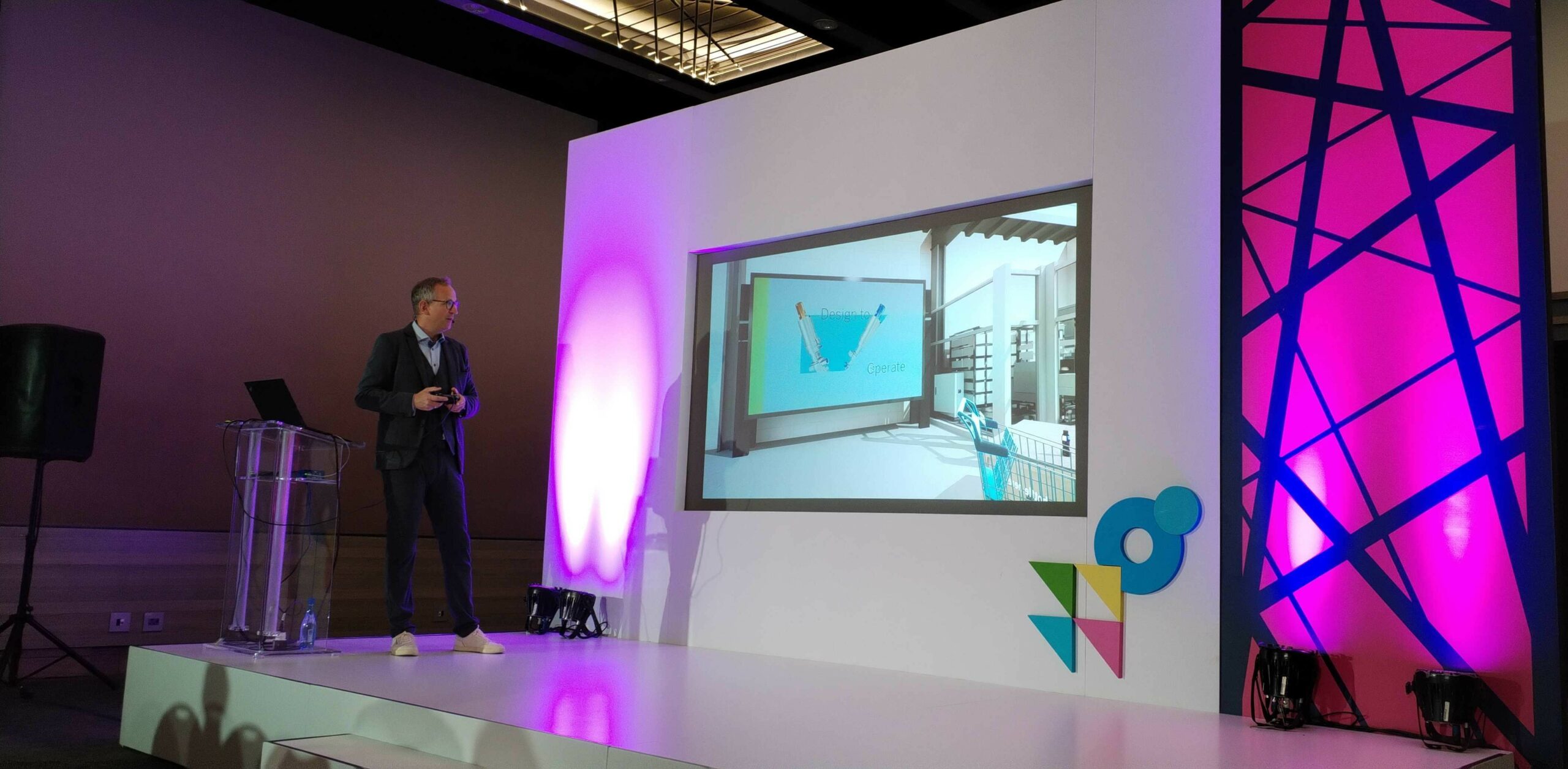Artifical Intelligence
Saphila: Metaverse makes big moves into industry
A talk and interview at last week’s Saphila conference highlighted the coming reality of virtual reality, write ARTHUR GOLDSTUCK and JASON BANNIER.
Share
- Click to share on Twitter (Opens in new window)
- Click to share on Facebook (Opens in new window)
- Click to share on LinkedIn (Opens in new window)
- Click to email a link to a friend (Opens in new window)
- Click to share on Reddit (Opens in new window)
- Click to share on WhatsApp (Opens in new window)
- Click to share on Pinterest (Opens in new window)
The metaverse may not seem viable in South Africa and other countries facing similar socio-economic challenges, but a global expert believes that the cost of virtual reality (VR) headsets and controllers are not an issue.
“The metaverse is helping in democratising and creating equal chances and access by design,” said Dr Oliver Gutzeit, global vice president of SAP’s experience technology team, in an interview during last week’s Saphila 2023 conference at Sun City. Saphila is a biennial conference hosted by the African SAP User Group (AFSUG) in partnership with SAP. Gutzeit delivered a presentation titled SAP in the Metaverse – Innovation in Action. We spoke to him later about its potential in South Africa.
“If it is done in the right way, it is really not a place that is depending on money to work in, or access,” he said. “It is helping to open opportunities. If inequality is high, the metaverse is a technology that can help, and is worth looking into. “Holograms and VR have long been a feature of the supposed fourth industrial revolution. When President Cyril Ramaphosa opened the first 4th Industrial Revolution SA summit in 2019, his address was live-streamed as a hologram to the Rustenburg Civic Centre. It was touted as the first live holographic presentation by a head of state, although India, China and France could have laid claim to the same laurels.
It’s just over four years later, and we have yet to see heads of state ditching their microphones for holograms. That’s the problem with most 4IR tech, from VR to 3D printing: it’s all very cool, but not often of practical use.

However, Gutzeit’s presentation suggested that VR and AR, or the metaverse, as such tech has been marketed since Facebook changed its name to Meta, is moving closer to true industrial application.
Introducing the topic, he exploded a few myths about the metaverse, including the misconceptions that it is all about Mark Zuckerberg’s Meta, that it is losing money, and that it is a “walled garden” that limits access.
More significantly, he underlined the commercial opportunity it offered in the industrial and manufacturing spaces. He shared projections by Deloitte that showed that the industrial metaverse, a virtual mirror of real-life industrial processes, was especially promising. It was expected to generate $22,73-billion in revenue by 2025, an $100-billion annual potential by 2030.
Deloitte’s research found that 85% of enterprises think that preparation for the Metaverse is necessary today, while 20% of manufacturers are developing metaverse applications or underlying solutions. Only 6% of enterprises see the metaverse as just a hype.
That was just a warm-up for Gutzeit’s own demonstration of the metaverse. He introduced his own avatar, a user’s digital representation of themselves in an online or virtual environment, and took the audience through a series of virtual rooms that make up a SAP Metaverse showcase.
From a leisure lounge to a SAP history museum to a virtual workbench to a convenience store that was quickly converted into a clothes shop, he encapsulated a range of settings possible in the metaverse. He demonstrated how he could customise a company car with different models and colours before the specs could be sent off for delivery of the real thing.
With a controller in his hands, he navigated through a videogame-like environment to demonstrate a real-life application of the metaverse in an industrial setting, rearranging items to simulate how it would affect a real environment. Is that enough to convince operators of factories and other industrial operations?
The fact that the metaverse has not yet taken off in this sector could turn out to be a good thing, said Gutzeit.
“We have more time to explore the metaverse, and we need to find out in which cases it will be an effective technology,” he told us later. “In the next few years, we will have a breakthrough for this technology. It won’t have the same disruptive effect as AI, but it will be an added piece of technology in our future.
“Overall, the metaverse is nothing to be in fear of. There will not be a sudden disruption, but rather a change over time. Talking about it, and being in the Metaverse, are two totally different things. You don’t have to like it, or stay there, or use it, but at least try it once – even if you think it has nothing to do with you or your business.”
* Arthur Goldstuck is founder of World Wide Worx and editor-in-chief of Gadget.co.za. Follow him on Twitter and Threads on @art2gee. Jason Bannier is a data analyst at World Wide Worx and writer for Gadget.co.za. Follow him on Twitter and Threads at @jas2bann.
Share
- Click to share on Twitter (Opens in new window)
- Click to share on Facebook (Opens in new window)
- Click to share on LinkedIn (Opens in new window)
- Click to email a link to a friend (Opens in new window)
- Click to share on Reddit (Opens in new window)
- Click to share on WhatsApp (Opens in new window)
- Click to share on Pinterest (Opens in new window)
| Thank you for Signing Up |

















